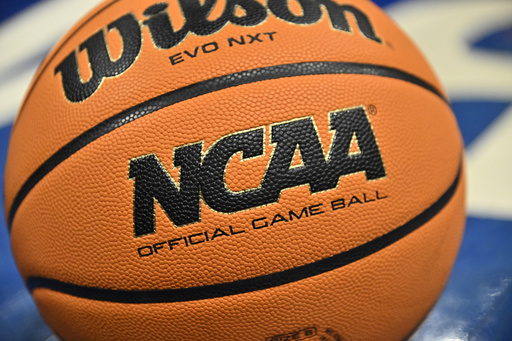
WASHIGTON — The NCAA’s persistent appeal to lawmakers for reforms in college sports may soon come to fruition with the newly Republican-led Congress.
Senator Ted Cruz from Texas, who will chair the influential Commerce Committee, recently emphasized that reforming college athletics will be a principal focus. He criticized Democrats for their lack of urgency in implementing necessary changes. However, to advance any legislation, he will need bipartisan support to achieve the requisite 60 votes in the Senate, which may require making concessions to those lawmakers who prioritize athlete welfare over boosting NCAA authority.
Former congressman Tom McMillen, who also played college basketball, remarked, “With Republicans in charge, the situation looks considerably more favorable for the NCAA,” framing it as an optimal scenario from the association’s viewpoint.
There are significant implications riding on this potential legislation. Cruz and like-minded supporters aim to protect components of the amateur athlete model, a system that has financed billions in scholarships and significantly contributed to U.S. Olympic success. Over years, discussions regarding these reforms have taken place, heavily influenced by extensive lobbying efforts from the NCAA and top-level athletic conferences. The NCAA has seen a more receptive Congress since Charlie Baker, a former Republican governor of Massachusetts, assumed its presidency in March 2023.
Currently, there is a growing bipartisan agreement that Congress should consider providing the NCAA a limited antitrust exemption, allowing it to create rules for college athletics free from the threat of constant litigation. The establishment of a national standard for athlete name, image, and likeness (NIL) compensation also appears necessary to replace the fragmented state laws currently in play.
Cruz has supported these legislative elements for over a year, with his team, along with allies like fellow Republicans Jerry Moran and Democrats Richard Blumenthal and Cory Booker, engaging in months of negotiations. However, these discussions have stalled amid the divided Congress.
Senator Maria Cantwell, a Democrat from Washington and the outgoing Commerce Committee chair, has pursued college sports reform since 2019 but has faced challenges in achieving consensus on legislation. Nevertheless, she acknowledges a specific issue that Congress could possibly rectify, particularly manifest in her home state’s experience with the Pac-12 Conference’s downfall.
“Currently, major schools and their supporters are in conflict with smaller institutions. We need a consistent national NIL standard that creates equity for athletes and schools,” Cantwell remarked in a recent statement.
A Supreme Court ruling in 2021 enabled athletes to receive NIL compensation, while a pending settlement of $2.8 billion regarding various antitrust lawsuits against the NCAA could provide financial reparations to former athletes who missed out on NIL earnings, plus revenue-sharing for future college stars.
In addition to the changes prompted by legal intervention, the NCAA has broadened health benefits for athletes and established new scholarship guarantees, which became effective on August 1. The NCAA insists these enhancements eliminate the necessity for congressional mandates on such benefits.
Tim Buckley, the NCAA’s senior vice president of external affairs, noted, “We believe that in the forthcoming Congressional session, members will observe the positive impacts of these changes, and our aim is to build upon them while resolving the remaining issues that only Congress can address.”
A primary objective for the NCAA, particularly with Republican leadership, is to prevent student-athletes from being categorized as employees of their institutions, Buckley explained. Several efforts are underway from athletes trying to unionize, with ongoing litigation already tied to this issue.
The NCAA has encouraged athletes to share their stance with Congress opposing employee classification, and some Democrats formerly in favor of the concept have recognized potential negative consequences, such as substantial reductions in women’s and Olympic sports due to financial pressures to cover payrolls. For instance, Cruz highlighted statements from historically Black colleges and universities warning that mandatory employee status for student-athletes could jeopardize their entire athletic programs.
However, excessive anti-employment language within any proposed legislation could jeopardize its chances of progress. Some Democrats are wary of endorsing legislation perceived as overly accommodating to the NCAA. Although moderate Democrat Booker has previously played college football at Stanford, he asserted that his support would hinge on an athlete-centric bill.
“For far too long, the college athletics system has prioritized profits over the rights and welfare of athletes. While we have made significant progress, further efforts are necessary,” he emphasized, committing to continue advocating for athletes in the next Congress.
Cruz might also deal with pressure from fellow Republicans, as Senator Tommy Tuberville from Alabama has advocated for congressional penalties against players breaching NIL contracts.
Acknowledging the necessity of compromise, Cruz remains intent on leveraging his position to further his, and to some extent the NCAA’s, objectives.
“As chair, I have the authority to convene hearings and oversee the agenda of the Commerce Committee,” Cruz asserted in a recent podcast, indicating he would influence which bills receive consideration and dictating legislative priorities significantly.
